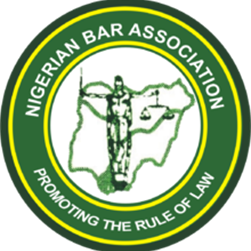
January 22, Premium Times: Judges of the Code of Conduct Tribunal (CCT) on Tuesday expressed divergent views on restraining orders by other courts against the trial of the Chief Justice of Nigeria, Walter Onnoghen.
PREMIUM TIMES reported the restraining orders granted by the Federal High Court and the National Industrial Court asking the CCT to halt the trial of the chief justice until suits filed in those courts are resolved.
On Tuesday, however, the CCT held that all orders of court restraining or stopping it from proceeding with the trial of Mr Onnoghen are not binding on it.
The CCT in a split decision of two to one discountenanced the orders of the court on the grounds that the orders were made by courts of equal jurisdiction and the CCT is a special court empowered to handle exclusively the issues relating to assets declaration.
The position of the CCT was made by the chairman, Danladi Umar, and was supported by another judge, Juli Anabor, who aligned herself with the chairman’s position while a third judge, Williams Atedze, gave the dissenting judgment.
Mr Umar had in his ruling held that those who obtained the orders of the High Court were busybodies because they are not parties in the matter at the tribunal.
He maintained that the orders of the high courts and that of the National Industrial Court are null and void on account of being inconsistent with the provisions of the Constitution, adding that section 246 makes it crystal clear that the tribunal has unquantified jurisdiction to hear any assets declaration case as may be referred to it by the Code of Conduct Bureau (CCB).
Mr Umar also disagreed with the request to adjournment the trial indefintely, on the grounds of a pending appeal at the Court of Appeal. He added that section 306 of the Administration of Criminal Justice Act, ACJA, 2015, did not make provisions for stay of proceedings in a criminal matter and that in the instant case, it shall not be entertained.
Mr Atedze in his dissenting ruling held that it would result to judicial anarchy for the tribunal to proceed with the trial in view of the four subsisting court orders and the pending appeal at the Court of Appeal.
According to him, orders are binding on the tribunal until they are set aside in view of section 287(3) of the 1999 Constitution which allow court orders to be enforced in all parts of the county, stressing that the CCT cannot operate in isolation.
“Having summarised argument from both parties, it is my submission that CCT as a creation of law is bound by the existing court orders to avoid judicial anarchy”, he held.
The member who further held that the issue of jurisdiction of the tribunal to entertain the charge against CJN must first be resolved, held that status quo must be maintained by adjoining proceedings indefinitely until all contending issues are resolved.
Although the chairman ordered that the motion challenging the jurisdiction of the tribunal should be moved immediately, counsel to the defendant, Wole Olanipekun, however, informed the tribunal that the response of the complainant, the federal government, was served on him late Monday and as such needed time to study the response and then filed reply on point of law.
The counsel to the federal government, Aliyu Umar, agreed that the government’s response was served late on the defendant, prompting the chairman to adjourned further proceedings till Monday, January 28.
Mr Onnoghen is being tried by the federal government for allegedly failing to declare his asset as at when due.
He has denied any wrongdoing.
Many Nigerians including opposition politicians have criticised the trial few weeks to the general election.



